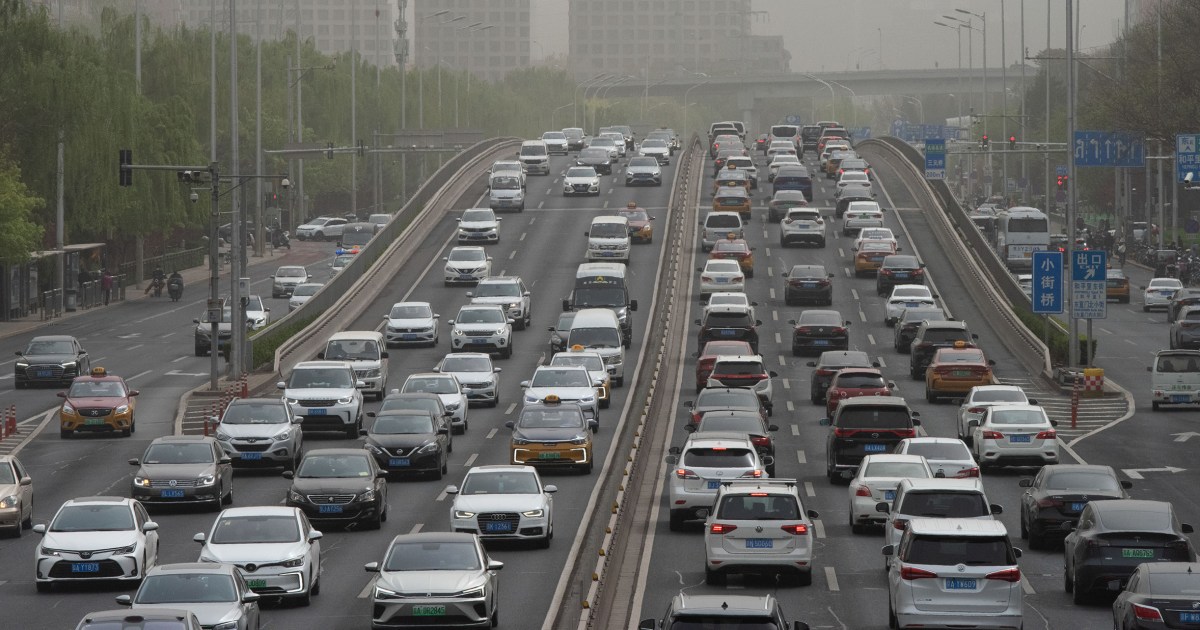Air polluted by the gases expelled by cars during traffic hours can sharply raise people’s blood pressure almost from the moment they begin to travel, revealed a study that monitored people traveling through the city in real time. roads with a lot of traffic.
The results, published Monday in the journal Annals of Internal Medicine, suggest that highway pollution not only poses risks that accumulate over time, but also causes almost immediate changes in people’s physiology. The research provided evidence that sitting in traffic could contribute to triggering diseases such as heart attacks and strokesalthough more studies are needed to establish clear links.
The study is the first to measure both pollution and its effect on blood pressure in real time from inside a moving vehicle. Researchers monitored both aspects dozens of times in Seattle traffic.
“We were surprised by the magnitude of the changes in blood pressure, given the low levels of pollution we measured,” said Dr. Joel Kaufman, professor of Medicine, Epidemiology and Environmental Health Sciences at the University of Washington and author of the study.
The study results included data from only 13 people, but add to a long list of research that underscores growing concern about the dangers posed to health by road pollution Americans, especially due to exhaust emissions and tire wear.
(The reasons why this UN environmental summit will be crucial for the planet)
“This study adds to a growing body of literature that air pollution on and near roads is dangerous to health,” said Doug Brugge, professor and chair of the Department of Public Health Sciences at the University of Connecticut, who was not involved in the study. “Highway driving – commuting, driving in heavy traffic – is an understudied concern that deserves more attention.”
To assess how traffic air pollution affects people, researchers sent people on two-hour trips along Seattle’s public roads, including Interstate 5.
The vehicle was equipped with a more powerful air filter than most cars usually have. In the passenger seat there was a device to filter the air, in the back seat pollution control equipment was placed and a device to control the blood pressure of the participants was installed on the drivers’ fingertips, he explained. Kaufman.
On some trips the filters worked and on others they were fake. Participants They never knew if the filters were working correctly or not. When the air filters did their job, the devices reduced particle pollution inside the vehicle by 86%, on average.
(The taste for avocados in the United States generates severe damage to the forests in Mexico)
Pollution levels were never terrible. On trips where the fake filters were used, the average air quality rating inside the car was only 36, which would earn a “poor” rating from air quality agencies, according to Kaufman.
Each participant took three trips: one with the real filters and two without them. The researchers found that, on average, people’s blood pressure levels increased significantly – about 4.5 mm on the bar of mercury, a measure of pressure – when the filters were not working.
“It’s a significant increase,” said Brugge, who researches ultrafine particles, which are not regulated in the United States and may play a major role in the health effects of pollution in areas near roads.
Kaufman noted that doctors often recommend people with hypertension follow a low-sodium diet or avoid certain medications. The increase in blood pressure observed during hours in traffic when the air was not filtered is almost equivalent to the effect of those prophylactic measures, but in the opposite direction, he indicated.
The study has limitations. It only included the results of 13 people, and the conditions during the journeys were similar but not identical. Brugge is concerned that factors such as differences in noise or vibrations on the routes could skew the study’s data. In his opinion, more studies with more subjects are necessary to confirm these results.
Researchers have linked traffic to heart attacks in the past. A study carried out in Germany revealed that the chances of suffering a heart attack were almost three times greater if you had been in traffic for the previous hour. Previous laboratory studies have shown that people’s blood pressure spikes after exposure to diesel fumes.
More than 8.3 million deaths a year worldwide can be attributed to air pollution, according to estimates from a study published Thursday in the BMJ (formerly called British Medical Journal). According to the study, phasing out fossil fuels would prevent almost two-thirds of those deaths.
According to Brugge, this type of research expands knowledge about the harmful effects of air pollution and its impact on the planet.
“Air pollution is one of the five main public health problems in the world,” he stressed. “What they are analyzing, and we have been studying, are additional air pollution problems that do not yet enter into that calculation.”

